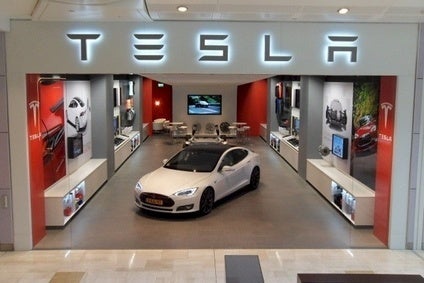An online discussion last month over the ‘eagerness’ of a fan to get Tesla on Indian roads, led CEO Elon Musk to highlight the major barrier for Tesla sales in the country – high import duties. Vehicle imports of all categories, including electric vehicles (EVs) attract hefty custom duties when imported, at the moment it’s 60% for vehicles under US$40,000 and 100% for vehicles above it. While most governments globally are incentivizing every channel of sales that boost EVs, import duties in India – the highest in the world – seems a bit unfair to Tesla as well as misaligned to the country’s climate change goals.
Tesla was registered as a business in India last year, but further developments in the country seem to be at a standstill following variances between the company and the government. The government potentially wants Tesla to ‘Make in India’ – maybe a small assembly line with semi-knocked down (SKD) imports – which attracts lower import duties. However, recent media reports suggest that the government is considering cutting duties on complete-built units (CBU) electric cars after Tesla lobbying – an important milestone, if achieved.
While India too has its EV ambitions and has fast-tracked efforts to develop the local market with attractive supply-side and demand-side incentives via policies such as FAME and various state policies, the government have been dismissive of allowing imports and focus largely on developing a ‘local’ market. The intention behind this is clearly ‘localization’ of most of the EV ecosystem to the benefit of the domestic auto industry. But for Tesla, which works on an export-based business model in new markets, setting up a local production/assembly line beforehand will be a challenge and doesn’t make economic or strategic sense until it gets an understanding of the domestic market demand volumes. CBU import looks like the last resort to ‘try and test’ the domestic market.
Entry in the country irrespective of the route means that Tesla still needs to make substantial investments in charging infrastructure, sales and service. High import duties that make Tesla cars ‘unaffordable’ risk the company’s investments. Building a production/assembly unit for the local market before testing the market may also have the same fate if volumes are insignificant. The company has reportedly promised more investments and increased local procurement of components following tax breaks on the imports. However, as per the reports, the government needs a clear commitment from Tesla on local manufacturing and procurement in lieu of reduced import duties.
Tesla is potentially eying a market entry strategy similar to China, where it tried and tested its products through imports and later built a production plant following the success of its vehicles. Tesla’s demand for the tax cut is quite reasonable and should not be a major challenge for the government as the import volume of EVs is quite limited at the moment. Further, Tesla entry will charge the EV market in the country and could help the government to get closer to its electrification targets.







